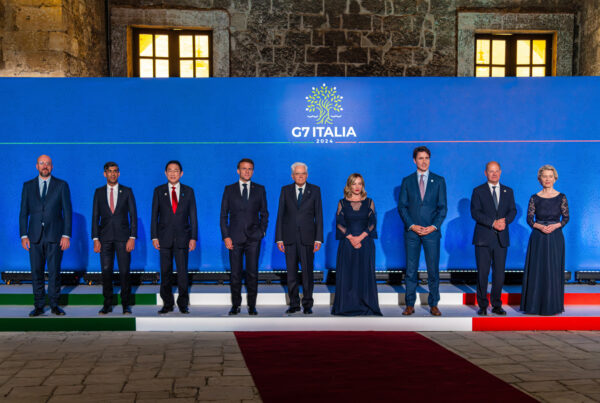In a significant development, the United Nations has launched the Global Principles for Information Integrity. These principles, unveiled by UN Secretary-General António Guterres, provide a comprehensive framework for coordinated international action to combat the alarming rise of mis/disinformation, hate speech, and other online harms, now exacerbated by AI technologies.
Key Points of the Announcement
Urgent Call to Action
The Secretary-General has issued an urgent appeal to governments, tech companies, advertisers, and the PR industry to take responsibility for the spread and monetization of harmful content. This highlights the need for a unified approach to tackle the growing issue of information integrity.
Human Rights at the Core
The principles are rooted in the rights to freedom of expression and opinion, empowering people to demand their rights to truth and safety online. This focus on human rights underscores the importance of a trustworthy information environment for the health of our democracies and societies.
AI’s Amplifying Effect
With the rise of AI-generated mis/disinformation, the principles emphasize the need for safeguards to ensure these technologies are used responsibly. The rapid advancements in AI require vigilant oversight to prevent the spread of harmful content.
Impacts on UN’s Work
The UN itself is not immune to these threats, with staff and missions worldwide facing real-world consequences due to the erosion of information integrity. The principles aim to protect the UN’s efforts and uphold its mission across the globe.
These guidelines are designed to create a more transparent and accountable digital landscape.
UN’s Call to Ban Fossil Fuel Advertisements
In addition to launching these principles, the UN has recently called for a ban on fossil fuel advertisements. This move demonstrates a recognition of the role advertising plays in shaping public opinion and the need to hold industries accountable for their impact on information integrity and the climate crisis.
Perspectives from Civil Society
Several CAAD representatives have voiced their support for the Global Principles for Information Integrity:
Jake Dubbins, CEO, Conscious Advertising Network
“The United Nations Global Principles for Information Integrity represent a huge step forward in the fight against misinformation and hate speech. The Conscious Advertising Network is proud to have been a key consultant to the UN, highlighting the importance of ethical and transparent advertising practices aligned to our manifestos. Since 2017, CAN has worked with the advertising industry and civil society experts to materially improve the information ecosystem that advertising funds.”
Jennie King, Director of Climate Research and Policy, Institute of Strategic Dialogue
“The launch of the UN Global Principles for Information Integrity marks a significant milestone in the fight against mis- and disinformation. These crises demand solutions built on informed consensus and robust civic discourse. The fight for information integrity is therefore a collective imperative, essential for the survival of our democracies, the health of our communities, and the future of our planet.”
Imran Ahmed, CEO, CCDH
“Our information ecosystem is being toxified by a combination of generative AI and social media, both of whom have failed to put in place guardrails that prevent saturating our digital commons with lies, conspiracy theories, and hate speech.”
The UN’s Global Principles for Information Integrity are a necessary step towards good governance of the global information ecosystem and must now be adopted by social media and AI companies and implemented by governments through regulation.”
Marc Faddoul, Director, AI Forensics
“Generative AI can produce personalized disinformation at low cost, while social media’s ad and content recommendation systems can be exploited to distribute this content to targeted audiences. Privacy, transparency, and safe design are all essential principles to ensure that technological development benefits users and societies at large.”
Tom Holen, Program Manager, InfluenceMap
“It is important that policies keep up with the evolving playbook of the oil and gas industry and are able to recognize and guard against misinformation and misleading claims about climate change.”
Michael Khoo, Climate Disinformation Program Director, Friends of the Earth
“We welcome these principles and hope they encourage regulators to protect our information ecosystem. Citizens cannot fight climate change without a healthy information environment, one where lies are not artificially amplified and where there are fewer financial incentives to spread disinformation.”
Sarah Wiley, Director, Policy and Partnerships | Check My Ads
“The business model of the internet is advertising. Unfortunately, we have seen how that business model has been broken by intermediaries as they have turned the creation and amplification of hate and disinformation into big business. We applaud the enhanced transparency measures for advertisers to bring back control over their campaigns.”
Conclusion
The launch of the UN Global Principles for Information Integrity is a pivotal moment in the fight against the spread of harmful content online. By addressing the role of AI and the influence of advertising, these principles aim to create a safer, more trustworthy digital landscape that upholds human rights and fosters sustainable societies. As we move forward, the collaborative efforts of governments, tech companies, and civil society will be crucial in implementing these principles and protecting the integrity of our information ecosystem.




